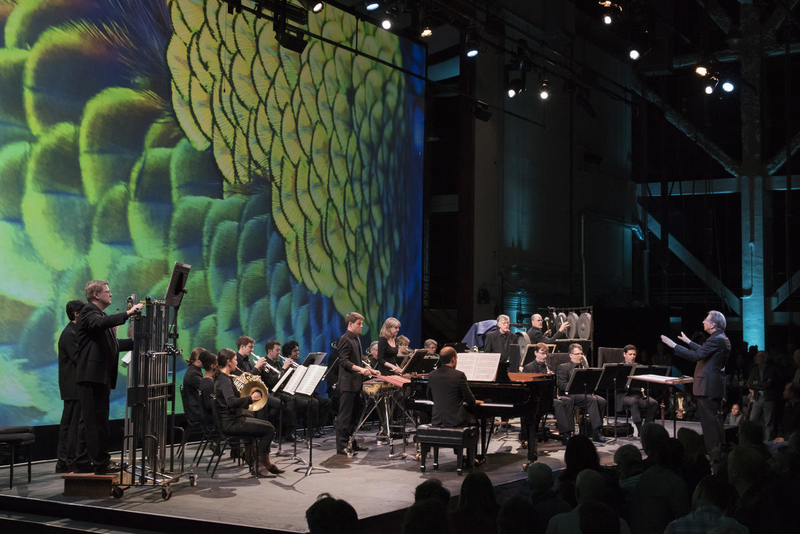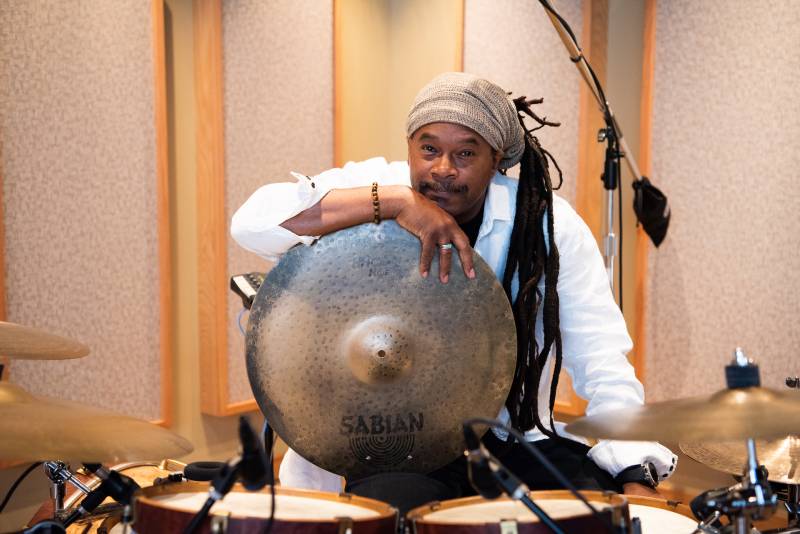Quentin Baxter didn’t need a pandemic lockdown to appreciate the riches of his hometown. The drummer and producer has earned a Grammy Award and international renown as a founding member of Ranky Tanky, the band that translates South Carolina’s West African Gullah music from sacred to secular settings. Enmeshed in Charleston’s vibrant cultural scene, he’s bringing an array of the city’s sights and sounds to the Bay Area with “Embarkation,” a program that marks the live return of San Francisco Symphony’s experimental SoundBox series Dec. 17-18.
“I never took performance for granted, but, oh my God, I want to play now,” says Baxter. “I want to show people what’s beautiful about Charleston. You grow up and think there’s nothing’s beautiful about home, and then you travel the world and realize it’s actually not like anywhere else.”
After a season of virtual shows, Baxter is reactivating Davies Symphony Hall’s once-reviled backstage rehearsal space for SoundBox’s eighth season of experimental late-night programming. SoundBox provides a living canvas for curatorial play. The space is outfitted with a Meyer Constellation sound system, which creates immersive and interactive acoustics via 28 microphones and 85 loudspeakers.
“It’s an opportunity for a visiting curator to put their musical mark on a program,” says Phillippa Cole, the Symphony’s senior director of artistic planning. “It’s a showcase for our musicians to be seen in a different light than they are on the stage of Davies Symphony Hall. It’s a place where we don’t have to stick to any pre-conceived musical rules, and it’s a way to invite our audiences to hear and experience music, both old and new, in a different way.”
Following “Embarkation,” next year’s guest curators include Chinese British composer and conductor Jamie Man (Jan. 14-15); violinist Pekka Kuusisto in tandem with Swedish composer and music software developer Jesper Nordin (Feb. 25-26); and American composer and multi-instrumentalist Tyshawn Sorey (March 25-26). The multifaceted lineup builds on SoundBox’s reputation as a singular outpost on the classical music spectrum.

Baxter connected with the SoundBox series through his close friend Scott Pingel, the San Francisco Symphony’s principal bassist. They met when Pingel moved to South Carolina to take over the principal bass chair with the Charleston Symphony Orchestra, and the ensemble needed a drummer for a concert with the great Puerto Rican jazz flutist Néstor Torres.



